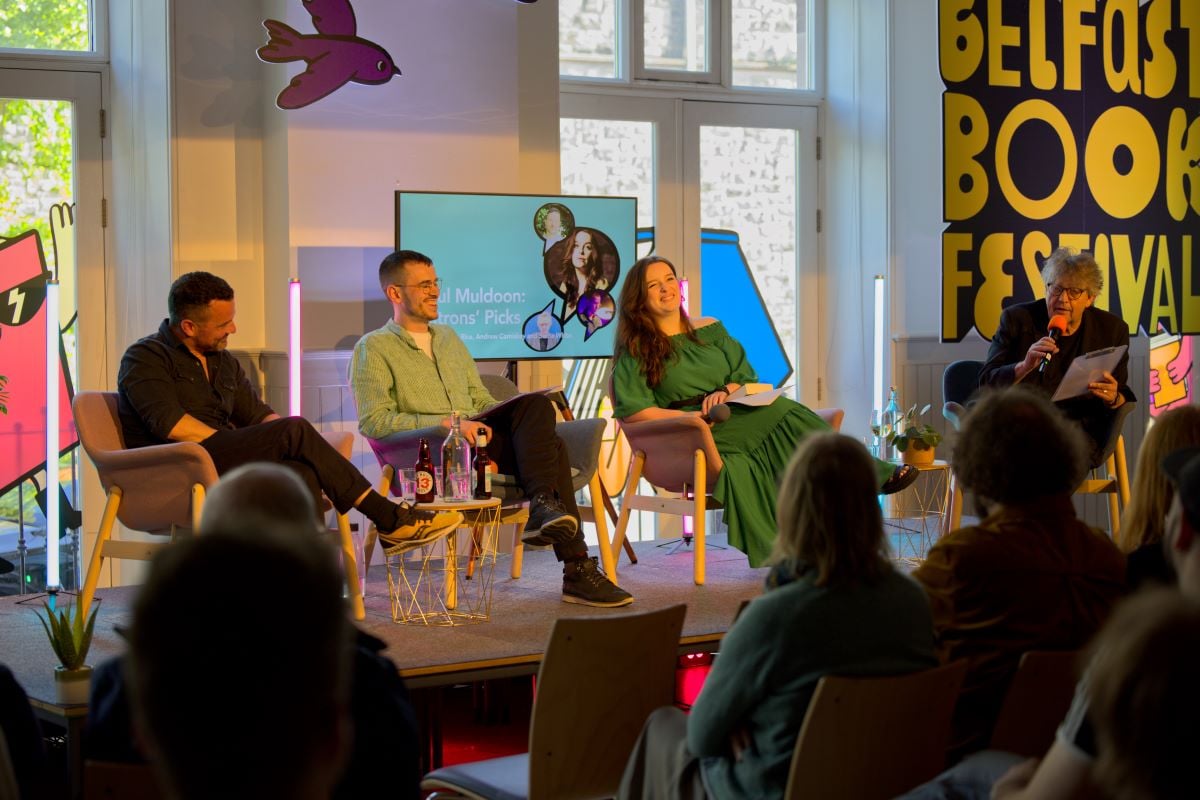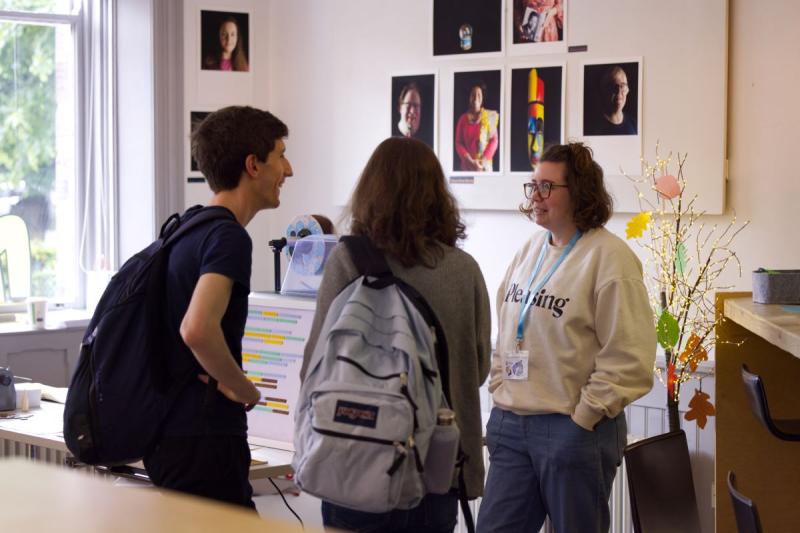
How to curate a festival
Belfast Book Festival is celebrating its 13th edition this week, bringing together Ireland's storytelling talent. Sophie Hayles is challenging the traditional model to deliver a festival that is more reflective of the communities across the island.
When preparing my job application for Chief Exec of Crescent Arts Centre (including Belfast Book Festival) in 2019 I did some intensive research on how to curate a festival. I had experience of managing many different arts events and activities but had never previously oversight of an entire festival.
Managing a year-round programme of activities wasn’t daunting – getting to know people, fostering relationships and connections, processes, pathways, evaluating – it sounded brilliant. But a festival – the pressure – it felt the opposite of what I might be good at.
The language of festivals made my knees feel funny: ‘headliners’, ‘big hitters’, ‘jam-packed’, ‘exclusive’ ‘first time in’. And with some experience of the visual arts sector, the term ‘curator’, and anything related to taste-making, made me feel an imposter.
About six months into the role, as I got a feel for the Crescent and the people in its orbit, this nervousness lessened. I shifted from feeling overwhelmed by the responsibility and needing to embody the optics of being ‘the decisive one’, to recognising the best thing I could do was foster the conditions for other people to make decisions.
With this in mind, for Belfast Book Festival 2023 I engaged four Associates to develop the direction. This piece was written a week before the festival, so I can’t speak to the outcomes, instead to what I learned on the way.
Festival Associates: why and how
Belfast Book Festival is run by Crescent Arts Centre: it’s the same entity, the same staffing model. The organisation has an annual turnover of just under £1m and a senior management team of four full-time posts, plus a coordinator and nine part-time customer service operatives.
We’re a small team that engages and facilitates multiple creative practitioners. I have been testing an Associates model in parts of the organisation over the last 18 months with the twin aims of empowering multiple creative voices, and opening out creative decision making.

The four freelance Associates working on this week’s book festival bring a variety of creative voices, tastes and experiences to its making. Two I had worked with previously and are based in Belfast, two I met last year are based in Ireland/other parts of the UK. They didn’t all know each other.
Initially their brief focused on a collective endeavour (rather than individual ideas). We met several times as a group, during the year running up to the festival, with some participants on Zoom. We only all met once in person.
But we had a shared Google document that included the headline information on the festival, strategic ambitions, data from previous years. All ideas were inputted here.
Collaboration vs Individual action
The group meetings were incredibly valuable. The conversations yielded different types of approaches: about whether a festival should always be about the new or if there were opportunities to celebrate writers that hadn’t spoken to Belfast audiences for a time; or to honour late writers whose work hadn’t been fully acknowledged.
There was no shortage of ideas. One of most challenging parts of the process was translating those ideas into specific actions which created an interesting tension to navigate. My aim was to give agency to multiple voices, but I decided what would get taken forward and how.
Attempting to maintain that aim and make things work practically, each Associate took ownership of a specific events or activities, with the freedom to address it in their own way. Sometimes that involved further collaborative work, but in the main each produced their own series. Sometimes deadlines were met, sometimes not.
An extremely positive by-product of the Associates model was the extended network of writers and contributors the festival was able to engage with, including funding and broadcasting partners.
Reflections on the process
Relationship-building takes time. Without knowing each other at the start, we had to establish a dynamic which was particularly challenging on Zoom. I would recommend in-person meetings if possible, and as early on as possible.
And while the model across the organisation is to engage different people annually in order to disperse work and opportunities, I am now questioning whether that will give enough time for relationships to develop.
Offering flexibility is a lovely, porous way to work but it can clash with managing expectations and clarity of brief. Running this this model again, I would invest more time up front in setting milestones. And although more time and more people is likely to cost more money, I think the return on investment is strong.
We talk a lot about the value and challenges of Open Calls and I will be applying this thinking to the process of engaging Associates. This year we worked with writers and those with experience of festival programming, but there are multiple alternatives.
I’m looking forward to seeing what impact engaging multiple voices and tastes in one festival will have. And, of course, to drawing in more fully the views of the Associates themselves – that’s for part two.
Sophie Hayles is CEO at Crescent Arts Centre.
![]() crescentarts.org/
crescentarts.org/
![]() @CrescentArts | @BelfastBookFest | @Hayles_Sophie
@CrescentArts | @BelfastBookFest | @Hayles_Sophie
Belfast Book Festival runs from 13-18 June 2023.
Join the Discussion
You must be logged in to post a comment.